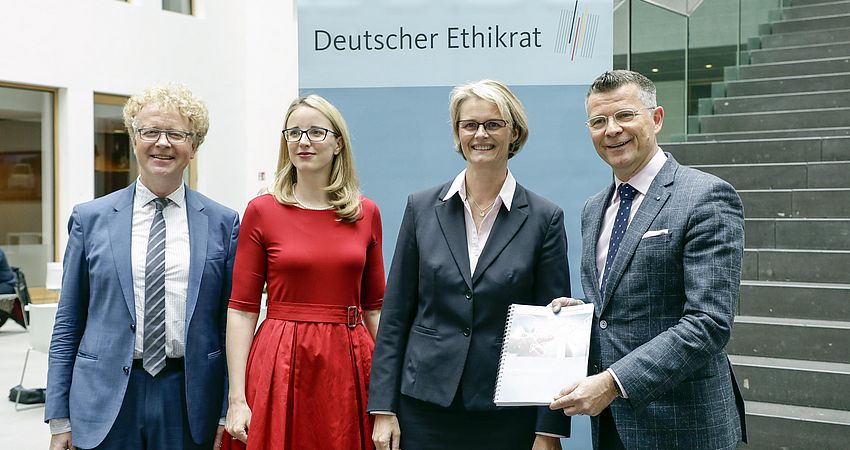
Ethics Council calls for moratorium of clinical germline manipulation
Following the birth of genome-edited twins in China, the German Ethics Council has provided a complete ethical review about human germline intervention.
Last year, the birth of the first genetically modified babies in China shook the world. The German Ethics Council now presents a comprehensive ethical investigation into possible interventions in the genome of human embryos or germ cells. According to their ethical analysis, human germline manipulation is not categorically inviolable. However, any clinical application should be banned because of the associated incalculable risks unless negative outcomes (including on- and off-target-effects of genome editing) could be largely excluded. The German Ethics Council, therefore, calls for an international binding moratorium on the clinical application of human germline intervention, preferebly unter lead of the United Nations.
The 20() experts say that the decision on germline intervention for correction of monogenic and polygenic diseases of for human enhancement should not be limited to a pure risk assessement or utilitaristic arguments. Instead it should consider all ethical standards such as human dignity, protection of life and integrity, freedom, non-maleficence and beneficence, naturalness, justice, solidarity and responsibility. Safety and efficacy of germline interventions must be guaranteed before any clinical application.
In contrast, the German Ethics Council clearly recommend to support basic research that assesses the impact of human germline interventions without any use of human embryos for in-vitro research. The experts recommend to set up an international institution to work out and oversee scientific and ethical guidelines for human germline intervention. According to the Ethics Council, an international discussion on germline interviention must be supported.
Despite the consensus on the current need for political action, different positions exist with regard to some of these issues – within the German Ethics Council, too. For example, whilst all members agree that the human germline is not inviolable, not everyone agrees that germline interventions should be pursued. A large majority sees the further development and use of the technology as a legitimate ethical goal when aimed at avoiding or reducing genetically determined disease risks. For a few members, however, germline interventions do not offer sufficiently high-ranking benefits that could justify their potential disadvantages.
Four Chinese bioethics experts at the same time stressed that genome-editing in the human germline should not be self-regulated by the scientific community but by law as Chinese researchers would be increasingly motivated by the promise of fame and fortune. In March, a World Health Organization advisory committee had called for establishment of a global registry of gene editing research on humans.




 Qiagen
Qiagen